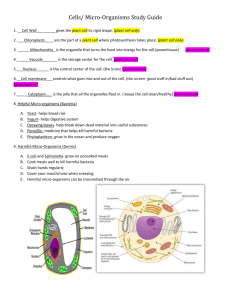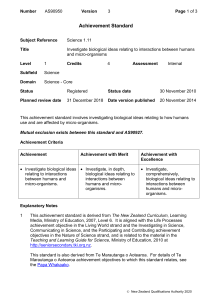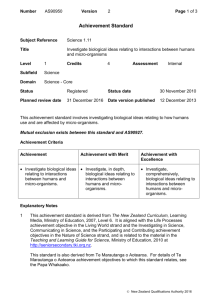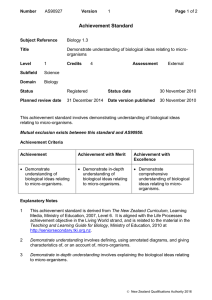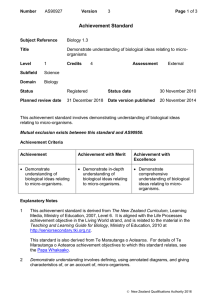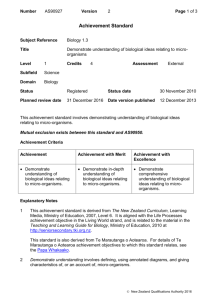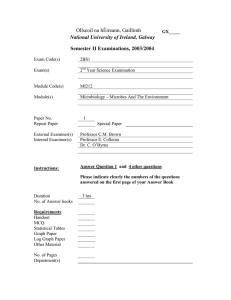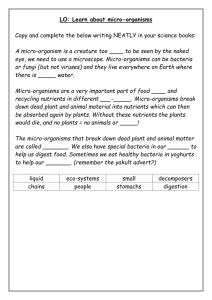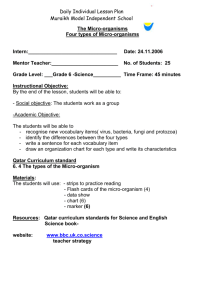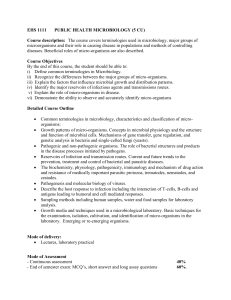Achievement Standard
advertisement
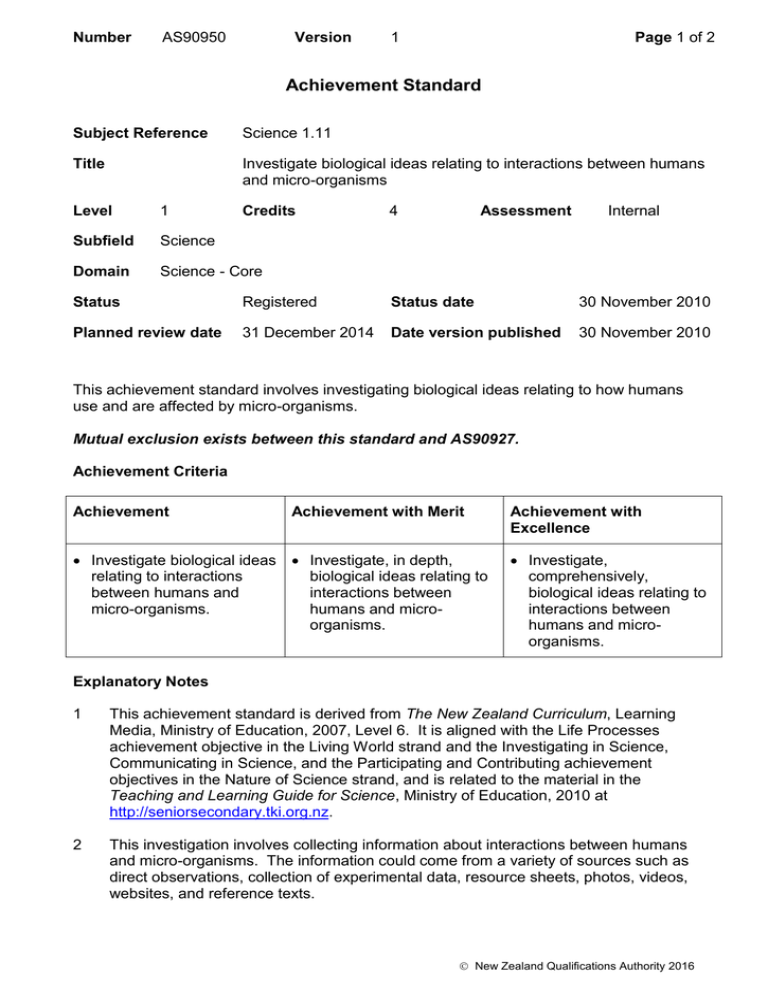
Number AS90950 Version 1 Page 1 of 2 Achievement Standard Subject Reference Science 1.11 Title Investigate biological ideas relating to interactions between humans and micro-organisms Level 1 Credits Subfield Science Domain Science - Core 4 Assessment Internal Status Registered Status date 30 November 2010 Planned review date 31 December 2014 Date version published 30 November 2010 This achievement standard involves investigating biological ideas relating to how humans use and are affected by micro-organisms. Mutual exclusion exists between this standard and AS90927. Achievement Criteria Achievement Achievement with Merit Achievement with Excellence Investigate biological ideas relating to interactions between humans and micro-organisms. Investigate, in depth, biological ideas relating to interactions between humans and microorganisms. Investigate, comprehensively, biological ideas relating to interactions between humans and microorganisms. Explanatory Notes 1 This achievement standard is derived from The New Zealand Curriculum, Learning Media, Ministry of Education, 2007, Level 6. It is aligned with the Life Processes achievement objective in the Living World strand and the Investigating in Science, Communicating in Science, and the Participating and Contributing achievement objectives in the Nature of Science strand, and is related to the material in the Teaching and Learning Guide for Science, Ministry of Education, 2010 at http://seniorsecondary.tki.org.nz. 2 This investigation involves collecting information about interactions between humans and micro-organisms. The information could come from a variety of sources such as direct observations, collection of experimental data, resource sheets, photos, videos, websites, and reference texts. New Zealand Qualifications Authority 2016 Number AS90950 Version 1 Page 2 of 2 The procedures outlined in Safety and Science: A Guidance Manual for New Zealand Schools, Learning Media, Ministry of Education, 2000, must be followed during any practical component investigation. 3 Investigate involves using observations or findings to describe how humans use or are affected by micro-organisms. 4 Investigate in depth involves using findings and biological ideas to explain how or why humans use or are affected by micro-organisms. 5 Investigate comprehensively involves using findings and biological ideas to make significant links about the interactions between humans and micro-organisms, including the impacts of this knowledge on human’s personal actions or everyday life. It may involve explaining, elaborating, applying, justifying, relating, evaluating, comparing and contrasting, and analysing. 6 Micro-organisms will be selected from: bacteria, fungi and viruses. 7 The ways that humans use and are affected by micro-organisms may include: disposal of organic wastes, sewage treatment, composting, food production and preservation, food poisoning, microbial action on everyday materials (helpful and harmful micro-organisms), disease in humans and animals they are in contact with, antibiotics, resistance to antibiotics, and origins and control of pandemics. 8 Biological ideas relating to how humans use and are affected by micro-organisms may include the following: structure and life processes of micro-organisms culturing of micro-organisms factors that affect the life processes of micro-organisms. 9 Conditions of Assessment related to this achievement standard can be found at www.tki.org.nz/e/community/ncea/conditions-assessment.php. Replacement Information This achievement standard and achievement standard 90927 replaced unit standard 6298. Quality Assurance 1 Providers and Industry Training Organisations must be accredited by NZQA before they can register credits from assessment against achievement standards. 2 Accredited providers and Industry Training Organisations assessing against achievement standards must engage with the moderation system that applies to those achievement standards. Accreditation and Moderation Action Plan (AMAP) reference 0233 New Zealand Qualifications Authority 2016
